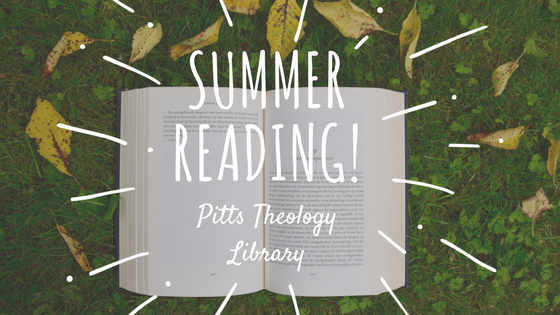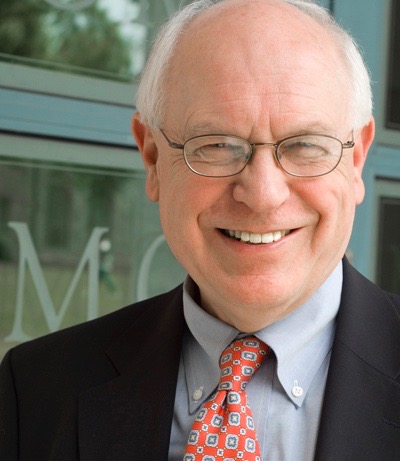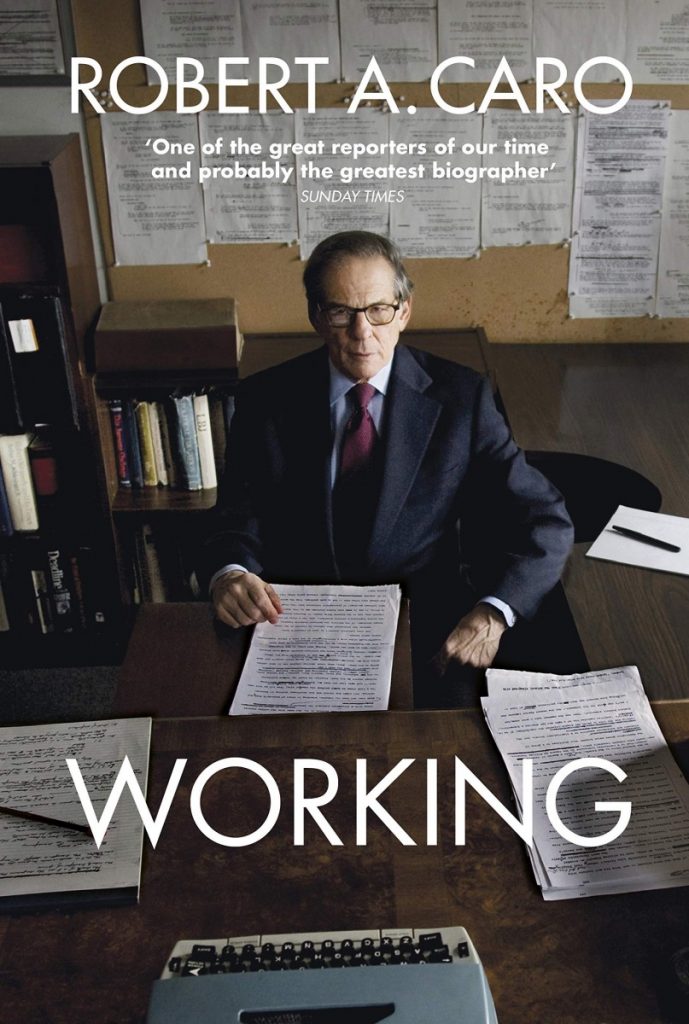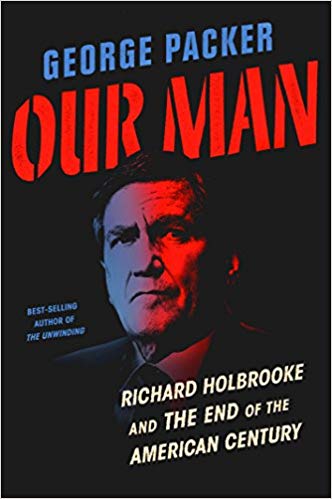
 While Dr. Carl Holladay, Charles Howard Candler Professor of New Testament, may be retiring after 39 years on the Candler faculty, his book shelves are still full as he moves on to a new chapter, and he was enthused to provide us with some parting reading suggestions this week!
While Dr. Carl Holladay, Charles Howard Candler Professor of New Testament, may be retiring after 39 years on the Candler faculty, his book shelves are still full as he moves on to a new chapter, and he was enthused to provide us with some parting reading suggestions this week!
 Dr. Holladay is currently reading Robert Caro’s Working: Researching, Interviewing, Writing (Knopf, 2019), a collection of some older essays on the writer’s craft from which even experienced writers can learn. This book provides a glimpse into the research and writing of investigative reporter and award-winning biographer, Robert Caro. Pick up a copy at the Woodruff Library in anticipation your writing assignments for the fall semester!
Dr. Holladay is currently reading Robert Caro’s Working: Researching, Interviewing, Writing (Knopf, 2019), a collection of some older essays on the writer’s craft from which even experienced writers can learn. This book provides a glimpse into the research and writing of investigative reporter and award-winning biographer, Robert Caro. Pick up a copy at the Woodruff Library in anticipation your writing assignments for the fall semester!
 If you’re in the mood for an engaging biography about a major figure in international diplomacy, Dr. Holladay recommends George Packer’s Our Man: Richard Holbrooke and the End of the American Century (Knopf, 2019). This work, written in Packer’s riveting prose, provides a probing look at the frenetic life of influential statesman, Richard Holbrooke, who played a key role in Balkan diplomacy.
If you’re in the mood for an engaging biography about a major figure in international diplomacy, Dr. Holladay recommends George Packer’s Our Man: Richard Holbrooke and the End of the American Century (Knopf, 2019). This work, written in Packer’s riveting prose, provides a probing look at the frenetic life of influential statesman, Richard Holbrooke, who played a key role in Balkan diplomacy.
 Dr. Holladay recently finished Dima Adamsky’s Russian Nuclear Orthodoxy (Stanford University Press, 2019), a fascinating account of the Russian Orthodox Church’s alignment with Russian foreign policy, especially the Russian nuclear industrial complex, since the emergence of the Russian Federation. Dr. Holladay describes Adamsky’s work as “a rather sobering case study of unalloyed church-state alliance, but also helpful in understanding Putin’s international political vision.”
Dr. Holladay recently finished Dima Adamsky’s Russian Nuclear Orthodoxy (Stanford University Press, 2019), a fascinating account of the Russian Orthodox Church’s alignment with Russian foreign policy, especially the Russian nuclear industrial complex, since the emergence of the Russian Federation. Dr. Holladay describes Adamsky’s work as “a rather sobering case study of unalloyed church-state alliance, but also helpful in understanding Putin’s international political vision.”
 Dr. Holladay’s final suggestion is an “informative though depressing account of another bleak moment in church history,” Ion Popa’s The Romanian Orthodox Church and the Holocaust (Indiana University Press, 2017). This history scrutinizes the role of the Romanian Orthodox Church from 1938 to the present day by unveiling and questioning myths that concealed the Church’s role in supporting official antisemitic policies of the Romanian government. This important publication goes on to analyze how Holocaust memory has been shaped in Romania today, and you can find it for purchase online or in Emory-affiliated libraries at worldcat.org.
Dr. Holladay’s final suggestion is an “informative though depressing account of another bleak moment in church history,” Ion Popa’s The Romanian Orthodox Church and the Holocaust (Indiana University Press, 2017). This history scrutinizes the role of the Romanian Orthodox Church from 1938 to the present day by unveiling and questioning myths that concealed the Church’s role in supporting official antisemitic policies of the Romanian government. This important publication goes on to analyze how Holocaust memory has been shaped in Romania today, and you can find it for purchase online or in Emory-affiliated libraries at worldcat.org.
Next week we’ll wrap up our Summer Reading blog with suggestions from Pitts’ Head of Research and Access Services, Sarah Bogue!
